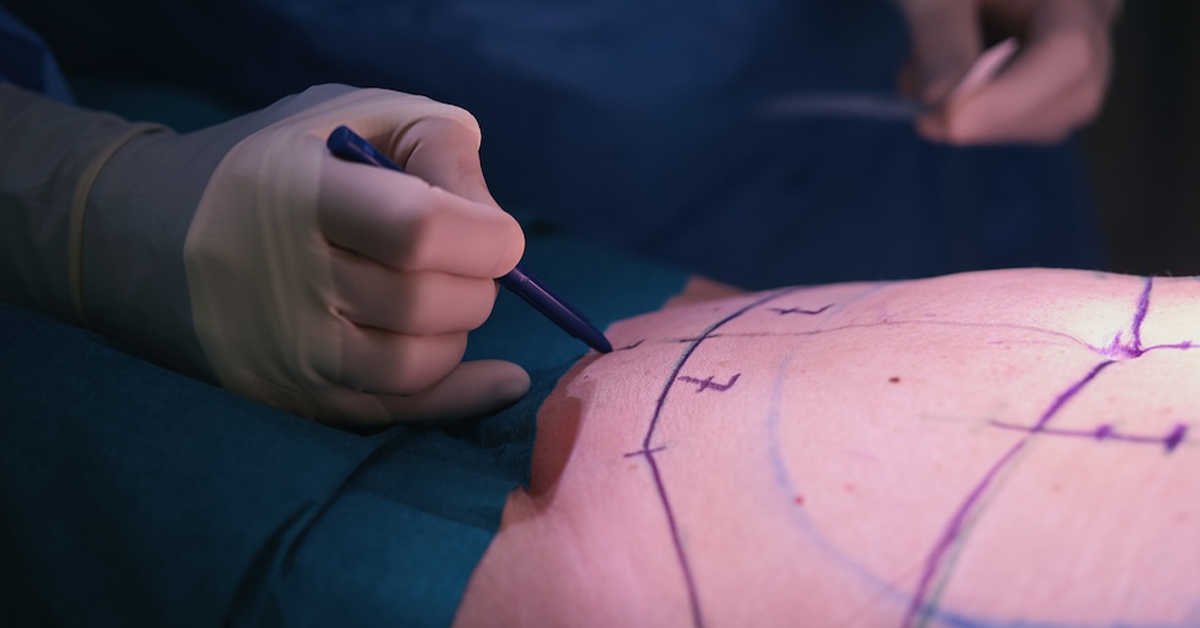When is Plastic Surgery Medically Necessary? Find Out Now.
Plastic surgery can be categorized into reconstructive and cosmetic procedures, with the former being performed for medical reasons. Understanding when plastic surgery is medically necessary is important for individuals considering these procedures.
- Plastic surgery can be divided into reconstructive and cosmetic procedures.
- Reconstructive plastic surgery is performed to restore function and correct deformities caused by birth defects or trauma.
- Examples of medically necessary plastic surgery include cleft lip and palate repair, breast reconstruction after mastectomy, and surgery after burn injuries.
- Cosmetic surgery, on the other hand, is performed to enhance appearance and is not considered medically necessary.
- Insurance coverage for plastic surgery can depend on the specific situation and the nature of the procedure.
Reconstructive Plastic Surgery: Correcting Deformities and Restoring Function
Reconstructive plastic surgery plays a crucial role in correcting deformities caused by birth defects, trauma, or diseases, helping individuals regain normal body function. These procedures are considered medically necessary as they aim to improve the quality of life and restore both physical and emotional well-being. Reconstructive surgery can address a wide range of conditions, from congenital anomalies to trauma-related injuries, and even surgery for disease.
One common example of reconstructive surgery is cleft lip and palate repair. This procedure not only improves the appearance of the face but also enhances the ability to speak, eat, and breathe properly. It requires a multidisciplinary approach, involving surgeons, orthodontists, speech therapists, and other healthcare professionals. Through precise surgical techniques and ongoing care, individuals with cleft lip and palate can achieve remarkable transformations.
Another important application of reconstructive plastic surgery is in breast reconstruction after mastectomy. This procedure aims to restore a sense of wholeness and femininity for women who have undergone breast cancer treatment. By recreating the breast mound using various techniques, such as implants or tissue transfer, breast reconstruction offers physical and psychological benefits to breast cancer survivors.
| Condition | Treatment |
|---|---|
| Cleft lip and palate | Surgical repair, orthodontic treatment, speech therapy |
| Breast cancer-related mastectomy | Breast reconstruction with implants or tissue transfer |
| Burn injuries | Skin grafts, scar revision, reconstructive procedures |
Reconstructive Plastic Surgery for Burn Injuries
Burn injuries can cause significant functional and aesthetic impairments. Reconstructive plastic surgery plays a vital role in improving the appearance of burn scars, restoring mobility, and reducing pain. Depending on the severity and location of the burn, various techniques such as skin grafts, flap surgery, or laser therapy may be employed to achieve optimal outcomes.
- Severity and location determine the type of reconstructive procedure
- Skin grafts involve transplanting healthy skin to cover the burned area
- Flap surgery uses tissue from elsewhere in the body to close the wound
- Laser therapy can help improve the appearance and texture of burn scars
By addressing the deformities caused by birth defects, trauma, or diseases, reconstructive plastic surgery improves not only the physical appearance but also the overall well-being of individuals. These procedures are considered medically necessary, and insurance coverage depends on the specific situation and policies. Consultation with a board-certified plastic surgeon is essential to determine the most appropriate course of action and to ensure realistic expectations are set for the desired outcomes.
Cosmetic Surgery: Enhancing Appearance for Non-Medical Reasons
Cosmetic surgery is primarily aimed at enhancing physical appearance and achieving desired aesthetic improvements, making it distinct from reconstructive plastic surgery. While reconstructive procedures focus on restoring function and correcting deformities caused by birth defects or trauma, cosmetic surgery is elective and not considered medically necessary.
There are numerous cosmetic procedures that individuals may choose to undergo in order to address specific concerns and achieve their desired look. Breast augmentation, for example, is a popular procedure that involves the placement of implants to enhance the size and shape of the breasts. Liposuction, on the other hand, aims to remove excess fat deposits from various areas of the body to create a more sculpted appearance. And Facelift procedures can help to reduce the visible signs of aging by tightening and smoothing the skin on the face and neck.
It’s important to note that while cosmetic surgery is not medically necessary, it can still have a significant impact on an individual’s self-esteem and overall well-being. By improving physical appearance, cosmetic procedures can boost confidence and enhance quality of life. However, it is crucial to have realistic expectations and to understand the potential risks and limitations associated with any cosmetic surgery. Consulting with a board-certified plastic surgeon is essential to ensure a thorough understanding of the procedures, potential outcomes, and any associated costs.
| Examples of Cosmetic Procedures | Benefits |
|---|---|
| Breast augmentation | Enhances breast size and shape |
| Liposuction | Removes excess fat deposits |
| Facelift | Reduces visible signs of aging |
Ultimately, cosmetic surgery is a personal choice that should be made after careful consideration and consultation with a qualified plastic surgeon. Understanding the distinction between cosmetic and reconstructive procedures, along with the associated risks and benefits, will empower individuals to make informed decisions about their own body appearance enhancements.
Determining Medical Necessity: Criteria, Insurance Coverage, and Surgeon Recommendations
Several factors, such as the impact on body function, disfigurement correction, and quality of life improvements, are taken into account when determining the medical necessity of plastic surgery. These criteria help ensure that patients receive the appropriate care they need. In addition to these factors, insurance coverage plays a significant role in determining whether a plastic surgery procedure will be covered.
Health insurance coverage for plastic surgery varies depending on the specific policy and the nature of the procedure. While reconstructive plastic surgery is typically covered when it is deemed medically necessary, cosmetic procedures are generally considered elective and are not covered by insurance. It is essential to review your insurance policy to understand the coverage and any potential out-of-pocket costs.
| Insurance Coverage | Medically Necessary Procedures | Cosmetic Procedures |
|---|---|---|
| Medicare | Covers procedures like repair after injury or trauma, repairing a malformed body part, and breast reconstruction after mastectomy | Does not cover cosmetic surgery procedures |
| Private Health Insurance | Coverage varies depending on the specific policy and the medical necessity of the procedure | Does not typically cover cosmetic surgery procedures |
When considering plastic surgery, it is crucial to consult with a board-certified plastic surgeon. They can assess your specific situation and provide recommendations based on their expertise and experience. Surgeon recommendations are an essential aspect of determining the medical necessity of a procedure.
Consultation and Communication: Essential Steps Before Undergoing Plastic Surgery
Before undergoing plastic surgery, thorough consultation and communication with a board-certified plastic surgeon are essential to ensure a successful outcome, patient satisfaction, and a smooth recovery process. During the consultation, the surgeon will evaluate your specific needs, discuss surgical techniques, address any concerns or questions you may have, and provide a comprehensive understanding of the procedure, including potential risks and benefits. It is important to openly communicate your expectations and goals, as this will help guide the surgeon in developing a personalized treatment plan tailored to meet your individual needs.
One important aspect to discuss during the consultation is the surgery recovery process. Understanding the expected recovery timeline, post-operative care instructions, and potential limitations or restrictions will help you prepare and plan accordingly. This can include items such as arranging for time off work, arranging for assistance during the recovery period, and planning for any necessary lifestyle adjustments. Your surgeon will provide detailed instructions for optimal recovery, which may include medications, dressings, physical therapy, or follow-up appointments.
| Surgery Recovery | Patient Satisfaction | Surgical Techniques | Surgery Costs | Anesthesia in Surgery |
|---|---|---|---|---|
| Follow post-operative care instructions | Manage expectations and communicate personal goals | Discuss the techniques used in the procedure | Understand the costs involved, including any potential insurance coverage | Review the type of anesthesia used and discuss any concerns |
Cost is another important aspect to consider. During the consultation, your surgeon will discuss the estimated surgery costs and payment options. It is crucial to have a clear understanding of the financial aspects, including any insurance coverage, out-of-pocket expenses, and financing options that may be available to you. By discussing these matters upfront, you can make an informed decision and avoid any surprises later on.
In addition to the above factors, the consultation is an opportunity to assess your comfort level with the surgeon and their staff. Establishing a trusting and open relationship is key to ensuring a positive surgical experience. Take the time to ask questions, voice any concerns, and familiarize yourself with the surgeon’s credentials and experience. Remember, choosing a board-certified plastic surgeon with a proven track record of success is vital for your safety and satisfaction.
By following these essential steps of consultation and communication, you can make informed decisions about plastic surgery and increase the likelihood of achieving the desired results. Remember, your surgeon is there to guide you through the process, address any concerns, and help you make the best choices for your individual needs. Together, you can work towards a successful outcome, improved self-confidence, and a positive surgical experience.
Conclusion
Understanding when plastic surgery is medically necessary is crucial for individuals considering these procedures, and consulting with a qualified plastic surgeon is essential to make informed decisions and achieve desired outcomes.
Plastic surgery can be divided into two categories: reconstructive and cosmetic. Reconstructive plastic surgery is performed to restore function and correct deformities caused by birth defects or trauma. Examples of medically necessary reconstructive surgeries include cleft lip and palate repair, breast reconstruction after mastectomy, and surgery after burn injuries. These procedures aim to improve body function and correct physical abnormalities, enhancing the quality of life for individuals affected by these conditions.
On the other hand, cosmetic surgery is performed purely for aesthetic purposes and is not considered medically necessary. Procedures such as Breast augmentation, Liposuction, and Facelift fall under this category. While they may enhance appearance, they do not address underlying medical conditions or improve body function.
Plastic Surgery in Miami, FL
The first step in getting a Plastic Surgery in Miami is to schedule a consultation with us. If you are interested in learning more, call us now at (305) 406-9055 or schedule a consultation online Now.







